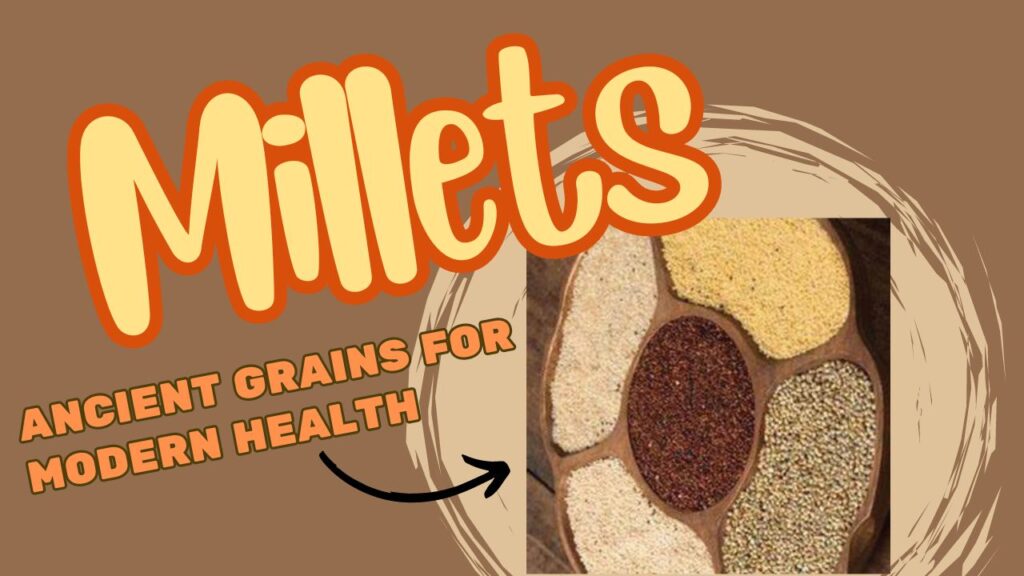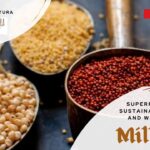Millets – Grains for Modern Health. “Make Time for your Wellness if not you will be forced to make Time for your Illness”


Nowadays, especially after COVID 19, Millets are becoming increasingly important in our diet, especially in these critical times, due to their numerous health benefits, environmental sustainability, and adaptability and also to the changing agricultural conditions in India.
So, let us understand the key reasons why Millets are essential:
Nutritional Benefits
Millets are not created by human beings so only Millets are called as powerhouse of essential nutrients, including proteins, vitamins, minerals, and fibre. They provide a balanced diet that supports overall health.
a. Gluten-Free: Millets are naturally gluten-free, making them an excellent choice for people with celiac disease or gluten intolerance.
b. High Fibre Content: The high dietary fibre content in millets play vital role in digestion, helps to prevent constipation, and promotes a healthy gut micro biome.
c. Low Glycemic Index: Millets have a low glycemic index, which means they release glucose slowly into the bloodstream. This helps to manage blood sugar levels and is beneficial for people with diabetes, which is to control diabetes or to prevent it.
Health Benefits
a. Heart Health: Millets are rich in magnesium, which helps in maintaining a healthy heart by regulating blood pressure and reducing the risk of heart disease.
b. Weight Management: The high fibre and protein content in millets can help with weight management by promoting a feeling of fullness and reducing overall calorie intake.
c. Antioxidant Properties: Millets contain antioxidants that help fight oxidative stress and reduce inflammation, which can lower the risk of chronic diseases.
d. Support for Bone Health: Millets are a good source of calcium and phosphorus, essential for maintaining strong bones and preventing osteoporosis.
Environmental Sustainability
a. Drought-Resistant: Millets are highly resilient and can grow in arid and semi-arid regions with minimal water requirements, making them a sustainable crop choice in the face of climate change.
b. Low Input Requirements: They require fewer inputs such as fertilizers and pesticides compared to other staple crops, reducing the environmental footprint of agriculture.
c. Soil Health: Millets contribute to soil health by preventing soil erosion and improving soil structure and fertility through their root systems.
Dear Readers, I shall provide very vital points about Millets in the next edition, till then plan and adapt Millets as your Health Partner and enjoy ……………….


Ajitkumarr
Director, Aavishjia Private Limited
No. 28, 2nd Main Road, Muniswamy Layout,
Vidyaranyapura, Bengaluru 560097
Mail ID : marketing@aavishjia.com
https://www.aavishjia.com
Ph: 98451 83494











